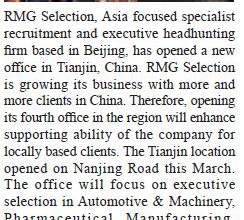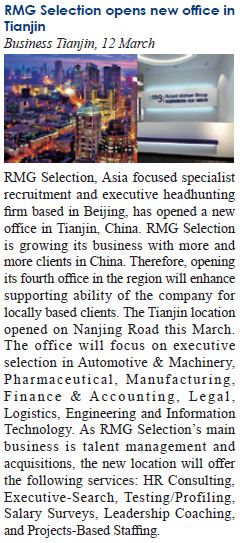
Every HR professional expects to find excellent employees for their company. But picking out the best out of hundreds or even thousands of interviewees is no easy job at all. Generally, when an HR person interviews someone with outstanding skills or techniques that exactly fit the needs of the company, he or she becomes very confident to recommend the interviewee to move on in the interview process. However, excellent technical skills are not the only key elements which could define an outstanding employee. So that leads us to topic of how to define remarkable employees and how to distinguish them from the masses!
1. Employees filled with lots of passion and positive energy
An HR will always fail to get outstanding employees if he or she judges interviewees by intuition alone. In this regard, the first step of finding the outstanding employees is to study current employees who have better-than-expected KPIs. By finding out why they can perform better than other employees and how they motivate themselves, companies will see a few general elements that can best define the group. Here I want to emphasize that remarkable employees generally are filled with explosive passion to life and work as well as positive energy to deal with every difficulty they might meet. I.e. there is a direct relationship between passion & energy and ‘hard’ KPIs/results.
2. Never stop interviewing until you are 100% sure
As I went through thousands of interviews with my HR department, I always remind them that only by interviewing to-be-decided interviewees in several rounds can we decide he or she is qualified enough. This would be fair for both the company and the interviewee, because everyone has good days and bad days. By interviewing one twice or three times with HR, operation, manager and managing director, the company will get a complete picture of an interviewee. Additionally, even though a company’s talent demand will be or is already downsized, they should never stop interviewing either. As this is how you keep pace with the dynamic talent market.
3. Find out interviewee’s personality
Though it’s not that difficult to figure out interviewee’s characteristics in the interview process, it’s a hard cracking nut to really test the personality. Instead of directly asking what the greatest achievement is, why not make it an open question? For instance, ask the interviewee to write down or talk about their top 3 achievements in childhood, in high school, in university and in their career life. It might take a long time to finish the interview, but isn’t it a good deal to get the real personality from interviewees’ achievement sharing process? A remarkable employee is one who has a great personality. It is the personality that differentiates between an ordinary employees or an extraordinary employee
4. Create an easygoing interview atmosphere
People tend to be nervous during the interview if HR people or general managers are too serious (or nervous themselves!). If we want to see the most authentic interviewee, then we’d better create a relaxing and easygoing atmosphere. In this case, interviewees normally get relaxed. On the one hand, they would enjoy telling more stories about themselves, from which we can judge fairly. As well – those unqualified interviewees who disguise themselves with fake information will be caught easily, so a relaxed environment is definitely a great strategy.
5. People with natural confidence
I believe an easygoing atmosphere is of importance. On the other hand, I especially look for interviewees with natural confidence. Be clear I am saying people with natural calmness even though they are nervous in mind, not people who talk arrogantly and look down at others or are ‘over-confident’. In general, people are in a state of nervousness, or at least excitement, when they are being questioned by senior interviewers with more experience. But have you ever noticed a type of interviewees who cannot be easily seen being nervous? If you have found this type, then I suggest you pay attention. Under pressure and strong heart beat, the interviewee who still can handle I think exhibits a mature outlook which shows they can well control their mood at work – vital for management level roles; so you surely won’t want to miss them.
6. Look for people with experiences in overcoming difficulties at work
Depends on different people’s life and career experiences, the more capability in dealing with difficulties at work one can show, the better adaptability one has. As people always talk about potential, it reminds me of a famous saying that you never know how far you can go. I believe it works the same way in one’s career. People can never know how much difficult work they can adapt to, so for those who have successful experiences in reaching an incredible sales number or dealing with an unexpected human resource crisis in the company they get their adaptability enhanced after every single difficulty they meet at work. In this regard, when a company hires this type of employees, they will not shy-away from dealing with challenges
7. People who come up with specific answers to interview questions
Personally when I interview someone I expect to have a good conversation with them. Of course this is not the case sometimes. I clearly remember I had an interview which was only 10 minutes. Simply because that interviewee could not come up with any specific answers I want to know. Therefore, I think it’s a good point to share with you. Outstanding employees never stops by answering only a few words for general questions, for example ‘what qualities do you know you need to do this job well’ they also explain in specific detail that how many qualities and why these qualities are important
8. Distinguish self-motivate type of interviewees
Everyone is looking for employees with success, but that is so wrong in a truly remarkable employee. And why is that? A remarkable employee should not be simply defined by the word “success”. One’s success can be viewed from head and tail. From the head side, we see people who work very hard by motivating themselves. And from the tail side, we see those who are motivated by their managers and directors. In management speak; we would talk about employees who are motivated either towards something (often pleasure) or away from something (often pain). It’s important to note that neither motivational strategy is necessarily better than the other, and different roles will demand different personality types, however it is important to understand how someone is motivated before the appointment is made.
9. Attitude is everything
If you ask me what can bring your success, the first thing that hits my mind will not be diligent, humble, humorous, smart, flexible etc. I remember when I read an article some years ago I found a funny alphabetical math count. Of lots of words that describes how one can become successful, only the word “attitude” equals to 100. I didn’t take it as a coincidence. When I think through the interviews I had for my company, all of the remarkable employees have one thing in common, that is hard-working attitude! So I suggest companies who want remarkable employees should be clear about the attitude and work-ethic of their interviewees.
10. Get real reference check via your connections
Last but not the least, most people can disguise themselves very well while actively looking for new opportunities. If an employer is very positive about an interviewee based on the tips above, I hope he/she doesn’t forget about reference as last. Doing a good reference check is not simply drop a call at the numbers in the reference column on the CV of the interviewee. That could be wrong or the judgment might not be fair. A better way to get fair comment might be calling connections from the interviewee’s company, or even using a third party for a more informal reference.
By Robert Parkinson, CEO & Founder of RMG Selection
Article published on Business Tianjin Magazine









 Source: CBN Weekly
Source: CBN Weekly